על המקום והשפה של האקדמיה בישראל: שיחה
צבי בן-דור בנית ולין חלוזין-דברת
שיחה בין צבי בן-דור בנית ולין חלוזין-דברת, שני חוקרים שגם עוסקים בפעילות פוליטית בתוך האוניברסיטה ומחוץ לה, כדי שממקומותיהם הגיאוגרפיים והדיסציפלינריים השונים – האחד במחלקה ללימודי מזרח תיכון ואסלאם באוניברסיטת ניו יורק, האחת במכון להיסטוריה ופילוסופיה של המדעים והרעיונות באוניברסיטת תל אביב – יחשבו יחד על מקומה של האקדמיה בישראל בין צפון לדרום. בן-דור בנית בוחן את האוניברסיטה בישראל בהקשרה האסיאתי ורואה בה, מאז הקמת האוניברסיטה העברית ב-1925 ועד ימינו, אוניברסיטה מנוכרת – בניגוד לאוניברסיטאות באסיה (ובפרט בהודו ובסין), שבמהלך מאה השנים האחרונות הפכו לאוניברסיטאות מנוכרות פחות, כאלה שמארחות גופי ידע מסורתיים ומכניסות לשעריהן ציבורים רחבים יותר ורואות בהם סובייקטים לגיטימיים של ידע. בן-דור בנית פונה אל המשורר רבינדרנת טאגור ולאוניברסיטה המזרחית שהקים ומתאר אותה כדגם של אוניברסיטה מקומית מכניסת אורחים. חלוזין-דברת בוחנת את האקדמיה בישראל מבעד לשאלת השפה – אקדמיה שהיא אמנם פריפריאלית ודוברת עברית, אך מכחישה בתוקף את הפריפריאליות שלה ומדמיינת את עצמה כחלק ממרכז הגמוני דובר אנגלית. היא תוהה על משמעויותיו של הפער שנוצר בין שפת המחקר והמדע לשפה של חיי היומיום ושל המשא ומגע החברתי, ועוקבת אחר הוויכוח שניטש לאחרונה על מחויבותה של האקדמיה בישראל לעברית – ויכוח שמתקיים בין עמדה לאומית פטריוטית, המבכרת את העברית כשפת הקוממיות של העם היהודי בארצו, ובין עמדה גלובליסטית אוניברסלית המבכרת את האנגלית בשיתופי פעולה מחקריים; היא רואה בכך ויכוח מדומה בין שני קטבים שאינם אלא דגשים שונים בתוך עמדה הגמונית ניאו-ליברלית לאומנית אחת, שלעומתה יש להציע עמדה שונה של אקדמיה בפריפריה. השיחה בין השניים נעה בין ביקורת האקדמיה משוללת המקום והשפה בישראל ובין האפשרות לדמיין כאן אוניברסיטה מסוג אחר.


